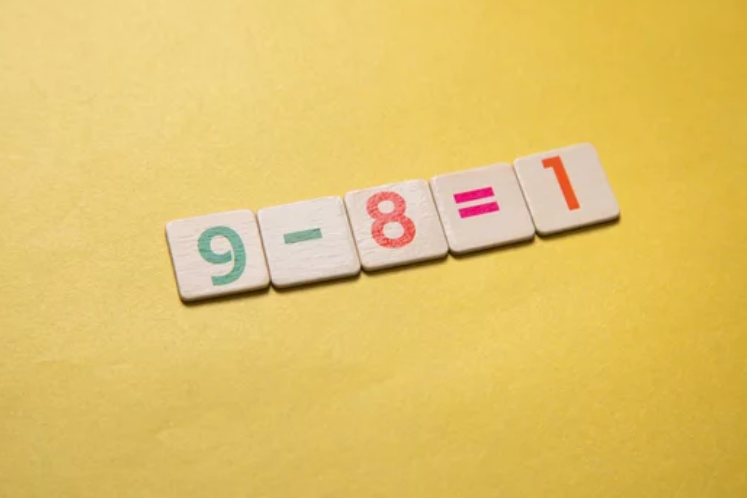Mathematics is an essential skill that children must master, yet many struggle with numbers and find learning math dull or overwhelming. However, with the right approach, math can become an engaging and enjoyable subject. One of the most effective ways to make math fun for kids is through printable worksheets. These resources offer structured learning while incorporating creativity, games, and hands-on activities to enhance understanding and retention. In this article, we explore various strategies to make math exciting using printable worksheets.
1. Use Colorful and Interactive Worksheets
Children are naturally drawn to colors and visually appealing materials. Traditional black-and-white worksheets may feel uninspiring, whereas colorful and interactive worksheets can make a big difference. Some ideas include:
- Using engaging graphics, cartoons, and themed designs to keep kids interested.
- Including cut-and-paste activities, where children can manipulate numbers physically.
- Offering coloring math sheets, where correct answers lead to a complete picture.
For younger kids, worksheets with fun illustrations of animals, superheroes, or fairy tales can make learning more immersive and enjoyable.
2. Incorporate Puzzles and Games
Math shouldn’t feel like a chore—it should be a puzzle to solve! Turning worksheets into math games keeps children engaged and encourages problem-solving skills. Some effective techniques include:
- Sudoku for Kids – A simple, number-based logic puzzle that strengthens pattern recognition.
- Math Crosswords & Word Searches – Kids search for math-related terms while reinforcing their vocabulary.
- Mazes with Math Problems – Children solve equations to navigate through a maze.
- Board Game-Style Worksheets – Students roll dice and solve math problems to progress.
Gamifying math worksheets reduces anxiety and helps children build a positive association with the subject.
3. Connect Math to Real-Life Scenarios
Children often question why they need to learn math. By using worksheets that connect math to real-world applications, kids can see its importance. Some engaging real-life scenarios include:
- Shopping and Budgeting – Worksheets where kids calculate costs, discounts, and change.
- Cooking Measurements – Converting measurements in recipes.
- Time and Scheduling Activities – Learning to read clocks, calculate elapsed time, or plan a daily schedule.
- Sports Stats & Scores – Using math to track scores, calculate averages, and analyze performance.
When kids see how math applies to their daily lives, they become more motivated to learn.
4. Implement Step-by-Step Challenges
Worksheets that provide a step-by-step approach to problem-solving help kids build confidence and avoid frustration. A scaffolded learning method works best:
- Start with simple exercises to warm up.
- Gradually increase difficulty, adding more complex problems.
- Provide hints and guided examples to support learning.
- Include fun rewards or certificates to celebrate progress.
This method ensures children remain engaged while steadily improving their skills.
5. Incorporate Hands-On Learning Activities
Some children learn best through hands-on activities, and printable worksheets can be paired with physical learning experiences. Some interactive ideas include:
- Cut-and-Sort Math Problems – Kids physically move and arrange number cards to match answers.
- Flashcard Matching – Pairing problems with their solutions.
- Dice Rolling and Number Games – Rolling dice to create math problems.
- Measuring and Building Projects – Using rulers and graphs to solve worksheet challenges.
Hands-on activities enhance engagement and allow children to experience math in a tangible way.
6. Offer Choice and Personalization
Children have different learning styles and interests. Allowing them to choose worksheets that align with their preferences can boost engagement. Offer worksheets with:
- Different themes (e.g., space, dinosaurs, sports, fairytales).
- Various problem formats (e.g., multiple choice, open-ended, fill-in-the-blank).
- Adaptive difficulty levels, so they can start at a comfortable level and progress.
Personalized learning helps children feel in control of their education and keeps them motivated.
7. Encourage Friendly Competition and Rewards
A little friendly competition can make learning exciting! Use printable worksheets to create fun competitions, such as:
- Timed Challenges – Kids race against the clock to complete problems.
- Math Bingo – Solving problems to mark off numbers on a bingo card.
- Group Competitions – Teams compete to solve worksheets the fastest.
- Earning Points and Badges – Completing worksheets earns rewards like stickers, badges, or small prizes.
These activities turn math into an enjoyable challenge rather than a tedious task.
Check out our Free Math and English Worksheet Generators
8. Integrate Digital Learning with Printable Worksheets
In today’s tech-driven world, blending digital learning with printable worksheets can create a well-rounded educational experience. Consider:
- Using QR codes on worksheets to link to explanatory videos.
- Encouraging children to check their answers using online tools.
- Combining printable worksheets with educational apps or interactive games.
This hybrid approach keeps students engaged while reinforcing concepts through multiple learning formats.
9. Make Math a Family Activity
Math doesn’t have to be a solitary subject! Parents and siblings can participate in worksheet activities to create a fun, supportive environment. Some family-friendly ideas include:
- Math Game Nights using printable worksheets as part of trivia or board games.
- Cooking Challenges where children measure and convert ingredients.
- Outdoor Math Hunts where kids solve problems to find hidden clues.
When math is integrated into everyday family activities, children develop a love for learning.
Making math fun for kids is all about creativity, engagement, and personalization. Printable worksheets offer an excellent way to teach essential math skills in an interactive and enjoyable manner. By incorporating colorful visuals, real-life applications, games, and hands-on activities, parents and educators can transform math into an exciting adventure.
With the right approach, children can develop confidence in math, improve their problem-solving skills, and foster a lifelong love for numbers. Start exploring fun, engaging, and educational worksheets today!
